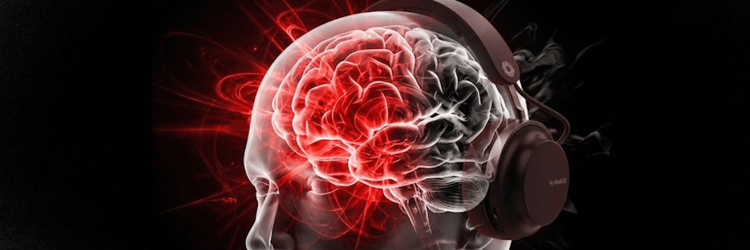Somewhere along the way, we confused productivity with “doing something all the time.”
Your replies to work groups should be in seconds. You must meet three deadlines at once. And you better have fresh ideas for that 8 PM meeting after being overloaded all day.
Somehow, we’ve normalised chaos, burnout, and stress.
Overbooked calendars? That just means you’re indispensable.
Back-to-back calls with no time to think? Welcome to leadership.
Crashing at 10 PM after a full workday, with family time left for the weekends? That’s balance, right?
And when the only break people don’t mind you taking is the one where you step out for a smoke…
Take it as a wake-up call: something’s not working.
Don’t get us wrong: stress, working hard, and being productive aren’t the enemy.
But extreme workplace stress that slowly chips away at your productivity? That definitely is.
So if you’re functioning like a 50-year-old at 35, keep reading.
Workplace Stress and Why It’s More Than Just Mental

Stress, more often than not, is not recognizable. It’s not loud.
Sometimes it’s forgetting what you were saying mid-sentence in the middle of a very important meeting. Or, feeling exhausted after a day of doing what feels like “nothing.”
Workplace stress kicks in when your job demands more than your mind or body can handle. A little pressure or slight stress is motivating. But, when stress becomes so chronic that it starts to erode your focus, memory, and energy — that’s probably not a sign of Cancer (we’re sure Google said that), but being under too much pressure.
There are three main forms of stress:
- Acute stress: short-term, but intense stress.
- Chronic stress: long-term, or sustained period of stress
- Burnout: when you’re mentally and physically exhausted.
And it’s not just mental. Stress shows up in your muscles, your stomach, your sleep and most of all, your productivity.
The WHO now calls workplace stress a global health epidemic. So if you’re blaming tiredness or assuming you just need a break, it might be worth asking if stress has moved in quietly and started calling the shots without you realizing it.
The Real Cost: How Stress Impacts Productivity
Everybody stresses, and most people tend to write stress off as if it's not a big issue.
But then again, there are people in the world who think global warming, mental health, and the moon landing are all made-up agendas or events. (And we'd bet a hefty amount that those who think stress is nothing to 'stress about' believe at least one of these three is fake.)
Thoughts ≠ Facts.
But you know what's factual? Research.
Stress has proven to be a long-term killer of productivity, and research suggests that chronic stress over a period of time could lead to 'exhaustion', which might weaken your immune system.
Here’s how it shows up:
- You can’t focus because your brain is too busy spiralling.
- You’re low on energy after that initial adrenaline spike crashes.
- You start worrying constantly, even about things that might never happen.
- You feel blocked, like your creativity’s gone offline.
- You snap, zone out, or disengage without even realising it.
And it’s not just about you. Stress impacts teams, too. One burned-out colleague can drag down collective morale, slow progress, and trigger a chain of miscommunication.
The result? A workforce that’s technically “present” but mentally miles away. Productivity and stress go hand-in-hand. When you stress beyond an optimal level, your productivity quietly crumbles.
Chronic stress doesn’t just hurt your day-to-day performance it may impact long-term brain function too. Cognitive health is deeply affected by chronic stress.
Hidden Signals: Signs Your Productivity Drop Is Stress-Driven
Like we said, you don’t always realize you’re stressed. Especially when your calendar’s full, your hours are long, and “being tired” is just part of your brand now.
But if your productivity is slipping in ways you can’t quite explain, stress might be driving the decline. Here’s what that usually looks like:
- You’re working more, but producing less. You're “on” all day, yet your to-do list stays suspiciously full. It’s not laziness. It’s your brain being overloaded and unable to prioritize. Without clarity, daily productivity becomes guesswork.
- Your focus is everywhere. Even five-minute tasks take thirty. You jump tabs, reread emails, and zone out mid-sentence. That’s not bad discipline, it’s a sign your mind is too scattered to settle. Want to increase your focus? Read here. - 9 Effects of Lack of Focus: How It's Quietly Damaging Your Career.
- You feel constantly drained. Stress gives you adrenaline at first. But then it crashes. Hard. And what’s left is emotional fatigue that no amount of iced coffee can fix. When your energy is gone, your ability to improve productivity goes with it. (Clear brain fog before it derails your day — these 5 tips can help)
- You’ve stopped being creative You’re not thinking outside the box because, frankly, the box is on fire. When stress maxes out your mental bandwidth, innovation is the first to go. (Reclaim your creative rhythm through flow state, where attention meets inspiration.)
- Your vibe is off Mood swings, snappy replies and that lingering irritability. These shifts may not scream “burnout,” but they do mess with team flow, and that affects workload management, collaboration, and workplace productivity.
Top Workplace Stressors You Might Be Ignoring
Here are a few sneaky sources of workplace stress that might be messing with your flow:
- Unclear roles: When you're not sure what’s expected of you, everything feels like guesswork — and that uncertainty builds pressure fast.
Poor communication: Mixed signals, constant changes, and lack of feedback leave you feeling unsettled.
- Zero autonomy: Being micromanaged or given no room to think kills motivation and stalls productivity improvement.
- No boundaries: If your work bleeds into every corner of your day, your work-life balance doesn’t stand a chance.
These factors slowly chip away at your confidence, focus, and sense of control all key aspects of emotional regulation and emotional intelligence at work.
And when those start to break down, it’s only a matter of time before productivity follows.
Because how emotions impact productivity isn’t just theoretical it’s your every day.
Significance of Reducing Stress & Regaining Productivity
Let’s get one thing clear: reducing stress isn’t a break from work — it’s how you get better at it.
We’ve been sold the idea that high performance = constant pressure. But that mindset is quietly wrecking teams, morale, and workplace productivity.
When you’re less stressed, your brain isn’t in constant fight-or-flight mode, which means you actually get to think. You make sharper decisions, your memory improves, and you stop second-guessing every move. (This isn’t just a hunch studies show that chronic stress weakens the part of your brain responsible for clear thinking and memory. Yep, it’s literally rewiring your brain if left unchecked)
Your body holds up better, too. Lower stress levels are linked to better immunity, steadier blood pressure, and fewer “I might be sick but I’m not sure” days. And when your body’s not busy fighting a hundred different fires? You get more done with less effort.
But maybe most importantly, your ideas actually have space to breathe. You respond instead of react. You’re more creative, more thoughtful, and according to the American Psychological Association far more likely to stay engaged and focused when stress is under control.
It’s not about doing less. It’s about doing it better without the burnout tax.
Want to improve productivity? Start by protecting your focus. That means reworking how you rest, how you communicate, and how you manage your energy across the day not just your tasks. Leaders play a big role here too. A workplace that prioritises work-life balance and psychological safety doesn’t just feel good — it performs better.
Because at the end of the day, stress isn't a badge of honour.
It’s a signal.
And listening to it might just be the smartest thing you do for your team and your output. Want to know how the world’s most productive minds maintain high output without burning out? Top performers thrive in flow state — here's why
Preventing Burnout Before It Begins
Burnout rarely arrives without a warning label. You just need to read the signs as they come. It always begins with a “busy week,” “a rough patch,” or “I'll rest up after this deadline.” Spoiler: the deadline never comes by. It’s always one thing after another.
The key to productivity improvement isn’t pushing through every hurdle, it’s pacing yourself. That means building micro-recoveries into your day before the crash comes along and wrecks you.
The truth is you will always have busy weeks, sometimes months, and hectic deadlines. Corporate is not forgiving and for most of us work-life-balance is a myth. So how do you pace yourself while also showing up for work (not just physically), every single day?
Read: Hustle culture: the double edged sword of success
- Block quiet hours where no one can book your time. Treat them like meetings because your brain needs time to think, not just react. If you spend 5/8 hours being productive, you could take mini breaks of 5-10 minutes every 2 hours.
- Take real breaks — the kind where you actually log off or step outside. (No, switching tabs doesn’t count.) Plus point: You’ll find out whether your workplace is toxic or not depending on how they react to a 15 minute break.
- Set personal red flags. If you haven’t had a thought beyond work in three days, or you're responding to Slack or Whatsapp or Teams messages in your dreams that’s your cue.
- Digital detox. If you could afford a digital detox to improve your productivity - take it. When 8 hours of your day are controlled by a screen, you’ll need to reset every once in a while.
The way our screens are engineered affects productivity more than we realize. Here’s how it’s designed to distract you.
Don't confuse stress at work with a bad day or maybe even a hectic week. It's a process. It a slow and steady leakage of your focus, your energy, and eventually, your performance.
If you’ve made it this far, you already know that fixing productivity isn’t just about downloading the right app or wearable devices like smart headphones. It’s about stepping back and reassessing how we work, and how we feel while doing it.
Whether it’s better workload management, clearer boundaries, or learning to respond instead of reacting, the goal is the same: productivity improvement without self-destruction.
Leaders, this starts with you. Creating space for emotional intelligence at work isn’t made-up — it’s strategy. Because how people feel directly shapes how they perform.
And for everyone else? The path to better work isn’t paved by hustling every single day. It’s built on adequate rest, clarity, and protecting your daily productivity as well.
Less stress doesn’t mean less ambition.
It means more focus, better ideas, and stronger teams.
Explore unconventional time management strategies to get more done without increasing stress.
FAQs
1. How does stress at work affect productivity?
- It reduces focus, clarity, and workplace productivity, often leading to burnout.
2. What are hidden signs of workplace stress?
Dips in daily productivity, low energy, and creative fatigue are common red flags.
3. Can better workload management reduce stress?
Yes good workload management helps prevent burnout and boosts performance.
4. How does emotional intelligence at work ?
It enables better emotional regulation, collaboration, and decision making.
5. What’s the best way to improve productivity without burnout?
Focus on productivity improvement through breaks, boundaries, and realistic goals.
Need help staying focused during high-pressure moments? Here’s what the top 1% listen to when they need to lock in.
More in Productivity













